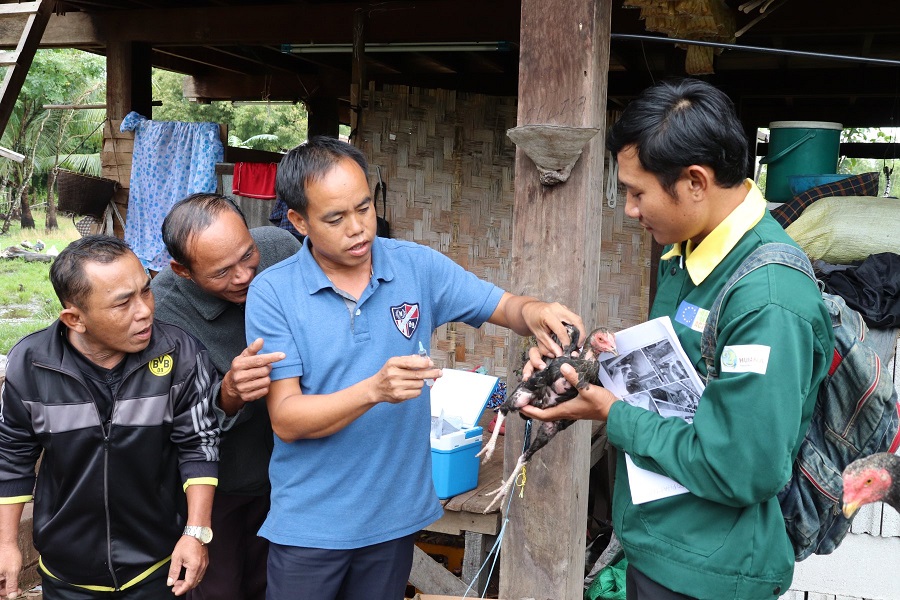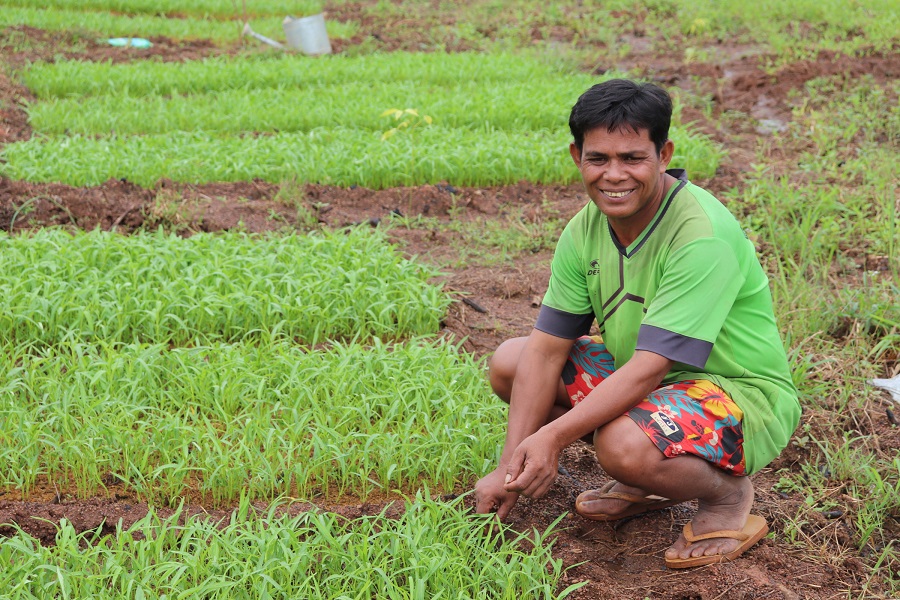Food and Nutrition Security
Project overview
Location: 6 districts in Khammouane Province: Bualapha, Mahaxay, Thakek, Nhommalath, Xaybuathong and Khounkham
Duration: 2018 to 2020
Beneficiaries: 5,000 farmers and their families in 100 villages
Implementing partners: Humana FPP, Health Poverty Action, Khammouane Province Health Office
Donor: European Union, Partnership for Improved Nutrition in Lao PDR
Project objective: Contribute to improved nutrition and food security towards achieving Priority 1 of Lao PDR's National Nutrition Strategy to 2025 and Plan of Action 2016 and SDG2.
Activities
Humana FPP is responsible for delivering activities around strengthening food security, resilience and dietary diversification of vulnerable communities. We work through our Farmers' Clubs approach and have established 100 FCs with around 50 members each. The FCs are the basic project structure through which activities are implemented.
Core activities include:
- Establishment of demonstration plots and vegetable gardens, 1 per FC, for participatory learning
- Training on climate-smart agriculture and other sustainable agricultural practices
- Establishment of 10 seed banks
- Adoption of small-scale water systems for irrigation
- Training of Trainers on SRI methodologies
- Training in animal husbandry and set-up of animal pass-on-loan schemes
- Introduction of innovative techniques of food processing, preparation and storage
- Creation and training of 6 cooperatives (1 per district) and processing equipment procurement
Expected project results
- Strengthen food security, resilience and dietary diversification in vulnerable communities
- Sustainable establishment of 100 Farmers' Clubs, 50 farmers each, to foster community-based learning and sharing of experiences
- Increase the income of 5,000 vulnerable farmers and their families by improving their yields, making value chains more sustainable, and introducing coping mechanisms to increase their resilience to external shocks.
- Reduce women's dependence on collecting non-timber forest products, and decrease women's overall workload
- Introduce and reinforce the use of climate-smart agriculture production systems such as conservation agriculture
- Provide households with the knowledge and skills to raise and maintain livestock, to diversify their crop cultivation, to preserve and process food, and to eat a nutritious balanced diet.






